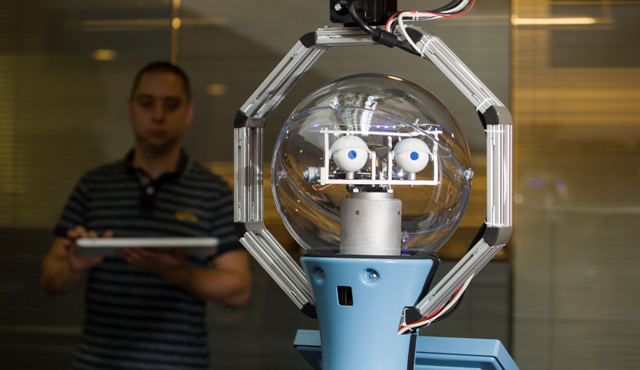By Kalwinder KaurAug 30 2013
To date, robots have been designed to carry out pre-programmed tasks in controlled environments. Robots have been tested in a real-world setting under controlled situations (for example, whereby they have been deployed in remote locations and controlled with step-by-step instructions to complete a task. However, implementing mobile robots into an unpredictable world has always been a challenging factor for researchers in the field of robotics.
A multi-million pound project coordinated by Dr. Nick Hawes, Senior Lecturer in Intelligent Robotics at the University of Birmingham, is currently in place to develop mobile robots that are capable of operating intelligently and learning from their experiences in a human environment.
The main aim of this project is to design and develop mobile robots that are capable of understanding their world and using this knowledge to manipulate their behaviour. In order to create such sophisticated technology, Professor Tom Duckett, Director of the Lincoln Centre for Autonomous Systems Research will help lead research on the development of 4D maps capturing the surrounding environment.
Implementation of these security mobile robots into a human environment without the need for extensive reprogramming will become a crucial challenge for this research team.
Currently the mobile security robots studied in this project have been placed in a care facility and a security scenario. "We chose a care home because we wanted to work on tasks where there is a genuine need for autonomous robots, and where we can make a positive impact on society. This was coupled with a need to find application scenarios where we can build on the previous work in robotics and artificial intelligence, which is mature enough for deployment in the real world (e.g. the control of mobile robots, but not things like autonomous manipulation or human-robot interaction)." - Dr. Nick Hawes.
Though restricted to two human environmental settings in the current project, these robots could one day be introduced to applications with a more general purpose (i.e., at work, at home etc.).

Image Credits: University of Birmingham.
In a human environment, being able to change a task-set in advance of a stimulus is a process partly acquired through instruction or trial and error. In the current project observation seems to be paramount to making these robots perform particular tasks in a care home or security setting.
The current project is a clear demonstration of how the design and development of autonomous robots is becoming more apparent and that, one day, these robots could work alongside humans in an unpredictable setting and share our living space. For autonomous robots, future advancements in suitable sensory inputs could encourage a hierarchy in the complexity of reactions to select from in response to an unpredictable scenario, bringing robots a step closer to understanding 3D space and living autonomously in a human world.
Sources and Further Reading
Disclaimer: The views expressed here are those of the author expressed in their private capacity and do not necessarily represent the views of AZoM.com Limited T/A AZoNetwork the owner and operator of this website. This disclaimer forms part of the Terms and conditions of use of this website.